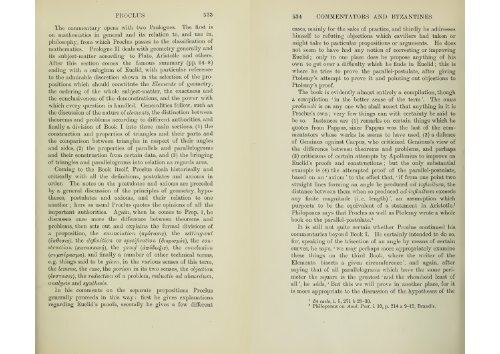A history of Greek mathematics Vol.II from Aristarchus to Diophantus by Heath, Thomas Little, Sir, 1921
MACEDONIA is GREECE and will always be GREECE- (if they are desperate to steal a name, Monkeydonkeys suits them just fine) ΚΑΤΩ Η ΣΥΓΚΥΒΕΡΝΗΣΗ ΤΩΝ ΠΡΟΔΟΤΩΝ!!! ΦΕΚ,ΚΚΕ,ΚΝΕ,ΚΟΜΜΟΥΝΙΣΜΟΣ,ΣΥΡΙΖΑ,ΠΑΣΟΚ,ΝΕΑ ΔΗΜΟΚΡΑΤΙΑ,ΕΓΚΛΗΜΑΤΑ,ΔΑΠ-ΝΔΦΚ, MACEDONIA,ΣΥΜΜΟΡΙΤΟΠΟΛΕΜΟΣ,ΠΡΟΣΦΟΡΕΣ,ΥΠΟΥΡΓΕΙΟ,ΕΝΟΠΛΕΣ ΔΥΝΑΜΕΙΣ,ΣΤΡΑΤΟΣ, ΑΕΡΟΠΟΡΙΑ,ΑΣΤΥΝΟΜΙΑ,ΔΗΜΑΡΧΕΙΟ,ΝΟΜΑΡΧΙΑ,ΠΑΝΕΠΙΣΤΗΜΙΟ,ΛΟΓΟΤΕΧΝΙΑ,ΔΗΜΟΣ,LIFO,ΛΑΡΙΣΑ, ΠΕΡΙΦΕΡΕΙΑ,ΕΚΚΛΗΣΙΑ,ΟΝΝΕΔ,ΜΟΝΗ,ΠΑΤΡΙΑΡΧΕΙΟ,ΜΕΣΗ ΕΚΠΑΙΔΕΥΣΗ,ΙΑΤΡΙΚΗ,ΟΛΜΕ,ΑΕΚ,ΠΑΟΚ,ΦΙΛΟΛΟΓΙΚΑ,ΝΟΜΟΘΕΣΙΑ,ΔΙΚΗΓΟΡΙΚΟΣ,ΕΠΙΠΛΟ, ΣΥΜΒΟΛΑΙΟΓΡΑΦΙΚΟΣ,ΕΛΛΗΝΙΚΑ,ΜΑΘΗΜΑΤΙΚΑ,ΝΕΟΛΑΙΑ,ΟΙΚΟΝΟΜΙΚΑ,ΙΣΤΟΡΙΑ,ΙΣΤΟΡΙΚΑ,ΑΥΓΗ,ΤΑ ΝΕΑ,ΕΘΝΟΣ,ΣΟΣΙΑΛΙΣΜΟΣ,LEFT,ΕΦΗΜΕΡΙΔΑ,ΚΟΚΚΙΝΟ,ATHENS VOICE,ΧΡΗΜΑ,ΟΙΚΟΝΟΜΙΑ,ΕΝΕΡΓΕΙΑ, ΡΑΤΣΙΣΜΟΣ,ΠΡΟΣΦΥΓΕΣ,GREECE,ΚΟΣΜΟΣ,ΜΑΓΕΙΡΙΚΗ,ΣΥΝΤΑΓΕΣ,ΕΛΛΗΝΙΣΜΟΣ,ΕΛΛΑΔΑ, ΕΜΦΥΛΙΟΣ,ΤΗΛΕΟΡΑΣΗ,ΕΓΚΥΚΛΙΟΣ,ΡΑΔΙΟΦΩΝΟ,ΓΥΜΝΑΣΤΙΚΗ,ΑΓΡΟΤΙΚΗ,ΟΛΥΜΠΙΑΚΟΣ, ΜΥΤΙΛΗΝΗ,ΧΙΟΣ,ΣΑΜΟΣ,ΠΑΤΡΙΔΑ,ΒΙΒΛΙΟ,ΕΡΕΥΝΑ,ΠΟΛΙΤΙΚΗ,ΚΥΝΗΓΕΤΙΚΑ,ΚΥΝΗΓΙ,ΘΡΙΛΕΡ, ΠΕΡΙΟΔΙΚΟ,ΤΕΥΧΟΣ,ΜΥΘΙΣΤΟΡΗΜΑ,ΑΔΩΝΙΣ ΓΕΩΡΓΙΑΔΗΣ,GEORGIADIS,ΦΑΝΤΑΣΤΙΚΕΣ ΙΣΤΟΡΙΕΣ, ΑΣΤΥΝΟΜΙΚΑ,ΦΙΛΟΣΟΦΙΚΗ,ΦΙΛΟΣΟΦΙΚΑ,ΙΚΕΑ,ΜΑΚΕΔΟΝΙΑ,ΑΤΤΙΚΗ,ΘΡΑΚΗ,ΘΕΣΣΑΛΟΝΙΚΗ,ΠΑΤΡΑ, ΙΟΝΙΟ,ΚΕΡΚΥΡΑ,ΚΩΣ,ΡΟΔΟΣ,ΚΑΒΑΛΑ,ΜΟΔΑ,ΔΡΑΜΑ,ΣΕΡΡΕΣ,ΕΥΡΥΤΑΝΙΑ,ΠΑΡΓΑ,ΚΕΦΑΛΟΝΙΑ, ΙΩΑΝΝΙΝΑ,ΛΕΥΚΑΔΑ,ΣΠΑΡΤΗ,ΠΑΞΟΙ
MACEDONIA is GREECE and will always be GREECE- (if they are desperate to steal a name, Monkeydonkeys suits them just fine)
ΚΑΤΩ Η ΣΥΓΚΥΒΕΡΝΗΣΗ ΤΩΝ ΠΡΟΔΟΤΩΝ!!!
ΦΕΚ,ΚΚΕ,ΚΝΕ,ΚΟΜΜΟΥΝΙΣΜΟΣ,ΣΥΡΙΖΑ,ΠΑΣΟΚ,ΝΕΑ ΔΗΜΟΚΡΑΤΙΑ,ΕΓΚΛΗΜΑΤΑ,ΔΑΠ-ΝΔΦΚ, MACEDONIA,ΣΥΜΜΟΡΙΤΟΠΟΛΕΜΟΣ,ΠΡΟΣΦΟΡΕΣ,ΥΠΟΥΡΓΕΙΟ,ΕΝΟΠΛΕΣ ΔΥΝΑΜΕΙΣ,ΣΤΡΑΤΟΣ, ΑΕΡΟΠΟΡΙΑ,ΑΣΤΥΝΟΜΙΑ,ΔΗΜΑΡΧΕΙΟ,ΝΟΜΑΡΧΙΑ,ΠΑΝΕΠΙΣΤΗΜΙΟ,ΛΟΓΟΤΕΧΝΙΑ,ΔΗΜΟΣ,LIFO,ΛΑΡΙΣΑ, ΠΕΡΙΦΕΡΕΙΑ,ΕΚΚΛΗΣΙΑ,ΟΝΝΕΔ,ΜΟΝΗ,ΠΑΤΡΙΑΡΧΕΙΟ,ΜΕΣΗ ΕΚΠΑΙΔΕΥΣΗ,ΙΑΤΡΙΚΗ,ΟΛΜΕ,ΑΕΚ,ΠΑΟΚ,ΦΙΛΟΛΟΓΙΚΑ,ΝΟΜΟΘΕΣΙΑ,ΔΙΚΗΓΟΡΙΚΟΣ,ΕΠΙΠΛΟ, ΣΥΜΒΟΛΑΙΟΓΡΑΦΙΚΟΣ,ΕΛΛΗΝΙΚΑ,ΜΑΘΗΜΑΤΙΚΑ,ΝΕΟΛΑΙΑ,ΟΙΚΟΝΟΜΙΚΑ,ΙΣΤΟΡΙΑ,ΙΣΤΟΡΙΚΑ,ΑΥΓΗ,ΤΑ ΝΕΑ,ΕΘΝΟΣ,ΣΟΣΙΑΛΙΣΜΟΣ,LEFT,ΕΦΗΜΕΡΙΔΑ,ΚΟΚΚΙΝΟ,ATHENS VOICE,ΧΡΗΜΑ,ΟΙΚΟΝΟΜΙΑ,ΕΝΕΡΓΕΙΑ, ΡΑΤΣΙΣΜΟΣ,ΠΡΟΣΦΥΓΕΣ,GREECE,ΚΟΣΜΟΣ,ΜΑΓΕΙΡΙΚΗ,ΣΥΝΤΑΓΕΣ,ΕΛΛΗΝΙΣΜΟΣ,ΕΛΛΑΔΑ, ΕΜΦΥΛΙΟΣ,ΤΗΛΕΟΡΑΣΗ,ΕΓΚΥΚΛΙΟΣ,ΡΑΔΙΟΦΩΝΟ,ΓΥΜΝΑΣΤΙΚΗ,ΑΓΡΟΤΙΚΗ,ΟΛΥΜΠΙΑΚΟΣ, ΜΥΤΙΛΗΝΗ,ΧΙΟΣ,ΣΑΜΟΣ,ΠΑΤΡΙΔΑ,ΒΙΒΛΙΟ,ΕΡΕΥΝΑ,ΠΟΛΙΤΙΚΗ,ΚΥΝΗΓΕΤΙΚΑ,ΚΥΝΗΓΙ,ΘΡΙΛΕΡ, ΠΕΡΙΟΔΙΚΟ,ΤΕΥΧΟΣ,ΜΥΘΙΣΤΟΡΗΜΑ,ΑΔΩΝΙΣ ΓΕΩΡΓΙΑΔΗΣ,GEORGIADIS,ΦΑΝΤΑΣΤΙΚΕΣ ΙΣΤΟΡΙΕΣ, ΑΣΤΥΝΟΜΙΚΑ,ΦΙΛΟΣΟΦΙΚΗ,ΦΙΛΟΣΟΦΙΚΑ,ΙΚΕΑ,ΜΑΚΕΔΟΝΙΑ,ΑΤΤΙΚΗ,ΘΡΑΚΗ,ΘΕΣΣΑΛΟΝΙΚΗ,ΠΑΤΡΑ, ΙΟΝΙΟ,ΚΕΡΚΥΡΑ,ΚΩΣ,ΡΟΔΟΣ,ΚΑΒΑΛΑ,ΜΟΔΑ,ΔΡΑΜΑ,ΣΕΡΡΕΣ,ΕΥΡΥΤΑΝΙΑ,ΠΑΡΓΑ,ΚΕΦΑΛΟΝΙΑ, ΙΩΑΝΝΙΝΑ,ΛΕΥΚΑΔΑ,ΣΠΑΡΤΗ,ΠΑΞΟΙ
You also want an ePaper? Increase the reach of your titles
YUMPU automatically turns print PDFs into web optimized ePapers that Google loves.
PROCLUS 533<br />
The commentary opens with two Prologues. The first is<br />
on <strong>mathematics</strong> in general and its relation <strong>to</strong>, and use in,<br />
philosophy, <strong>from</strong> which Proclus passes <strong>to</strong> the classification <strong>of</strong><br />
<strong>mathematics</strong>. Prologue <strong>II</strong> deals with geometry generally and<br />
its subject-matter according <strong>to</strong> Pla<strong>to</strong>, Aris<strong>to</strong>tle and others.<br />
After this section comes the famous summary (pp. 64-8)<br />
ending with a eulogium <strong>of</strong> Euclid, with particular reference<br />
<strong>to</strong> the admirable discretion shown in the selection <strong>of</strong> the propositions<br />
which should constitute the Elements <strong>of</strong> geometry,<br />
the ordering <strong>of</strong> the whole subject-matter, the exactness and<br />
the conclusiveness <strong>of</strong> the demonstrations, and the power with<br />
which every question is handled. Generalities follow, such as<br />
the discussion <strong>of</strong> the nature <strong>of</strong> elements, the distinction between<br />
theorems and problems according <strong>to</strong> different authorities, and<br />
finally a division <strong>of</strong> Book I in<strong>to</strong> three main sections, (1) the<br />
construction and properties <strong>of</strong> triangles and their parts and<br />
the comparison between triangles in respect <strong>of</strong> their angles<br />
and sides, (2) the properties <strong>of</strong> parallels and parallelograms<br />
and their construction <strong>from</strong> certain data, and (3) the bringing<br />
<strong>of</strong> triangles and parallelograms in<strong>to</strong> relation as regards area.<br />
Coming <strong>to</strong> the Book itself, Proclus deals his<strong>to</strong>rically and<br />
critically with all the definitions, postulates and axioms in<br />
order. The notes on the postulates and axioms are preceded<br />
<strong>by</strong> a general discussion <strong>of</strong> the principles <strong>of</strong> geometry, hypotheses,<br />
postulates and axioms, and their relation <strong>to</strong> one<br />
another ; here as usual Proclus quotes the opinions <strong>of</strong> all the<br />
important authorities. Again, when he comes <strong>to</strong> Prop. 1, he<br />
discusses once more the difference between theorems and<br />
problems, then sets out and explains the<br />
formal divisions <strong>of</strong><br />
a proposition, the enunciation (rrporacrLs), the setting-out<br />
(eKOeais), the definition or specification (8iopianos), the construction<br />
(Karaa-Kevrj), the 2<br />
jro<strong>of</strong><br />
(av/jL7repaor/ia), and finally a number <strong>of</strong><br />
(dTToSeigts), the conclusion<br />
other technical terms,<br />
e.g. things said <strong>to</strong> be given, in the various senses <strong>of</strong> this term,<br />
the lemma, the case, the porism in its two senses, the objection<br />
(evo-Tacris), the reduction <strong>of</strong> a problem, reductio ad absurdum,<br />
analysis and synthesis.<br />
In his comments on the separate propositions Proclus<br />
generally proceeds in this way : first he gives explanations<br />
regarding Euclid's pro<strong>of</strong>s, secondly he gives a few different<br />
534 COMMENTATORS AND BYZANTINES<br />
cases, mainly for the sake <strong>of</strong> practice, and thirdly he addresses<br />
himself <strong>to</strong> refuting objections which cavillers had taken or<br />
might take <strong>to</strong> particular propositions or arguments. He does<br />
not seem <strong>to</strong> have had any notion <strong>of</strong> correcting or improving<br />
Euclid; only in one place does he propose anything <strong>of</strong> his<br />
own <strong>to</strong> get over a difficulty which he finds in Euclid ; this is<br />
where he tries <strong>to</strong> prove the parallel-postulate, after giving<br />
P<strong>to</strong>lemy's attempt <strong>to</strong> prove it and pointing out objections <strong>to</strong><br />
P<strong>to</strong>lemy's pro<strong>of</strong>.<br />
The book is evidently almost entirely a compilation, though<br />
a compilation in the better sense <strong>of</strong> the term ' '. The onus<br />
probandi is on any one who shall assert that anything in it is<br />
Proclus's own ; very few things can with certainty be said <strong>to</strong><br />
be so. Instances are (1) remarks on certain things which he<br />
quotes <strong>from</strong> Pappus, since Pappus was the last <strong>of</strong> the commenta<strong>to</strong>rs<br />
whose works he seems <strong>to</strong> have used, (2) a defence<br />
<strong>of</strong> Geminus against Carpus, who criticized Geminus's view <strong>of</strong><br />
the difference between theorems and problems, and perhaps<br />
(3) criticisms <strong>of</strong> certain attempts <strong>by</strong> Apollonius <strong>to</strong> improve on<br />
Euclid's pro<strong>of</strong>s and constructions ;<br />
but the only substantial<br />
example is (4) the attempted pro<strong>of</strong> <strong>of</strong> the parallel-postulate,<br />
based on an axiom ' ' <strong>to</strong> the effect that, ' if <strong>from</strong> one point two<br />
straight lines forming an angle be produced ad infinitum, the<br />
distance between them when so produced ad infinitum exceeds<br />
any finite magnitude (i. e. length) ', an assumption which<br />
purports <strong>to</strong> be the equivalent <strong>of</strong> a statement in Aris<strong>to</strong>tle. 1<br />
Philoponus says that Proclus as well as P<strong>to</strong>lemy wrote a whole<br />
book on the parallel-postulate. 2<br />
It is still not quite certain whether Proclus continued his<br />
commentaries beyond Book I. He certainly intended <strong>to</strong> do so,<br />
for, speaking <strong>of</strong> the trisection <strong>of</strong> an angle <strong>by</strong> means <strong>of</strong> certain<br />
curves, he says, we may perhaps more appropriately examine<br />
'<br />
these things on the third Book, where the writer <strong>of</strong> the<br />
Elements bisects a given circumference ', and again, after<br />
saying that <strong>of</strong> all parallelograms which have the same perimeter<br />
the square is the greatest ' and the rhomboid least <strong>of</strong><br />
all', he adds, ' But this we will prove in another place, for it<br />
is more appropriate <strong>to</strong> the discussion <strong>of</strong> the hypotheses <strong>of</strong> the<br />
1<br />
De caelo, i. 5, 271 b 28-30.<br />
2<br />
Philoponus on Anal. Post. i. 10, p. 214 a 9-12, Brandis.

















